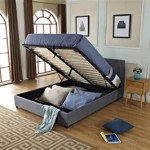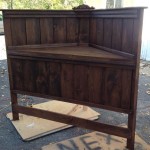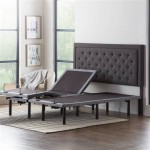Are Metal Bed Frames Bad For Your Health?
When choosing a bed frame, many factors come into play, such as aesthetics, durability, and comfort. However, one aspect that may not be immediately apparent is the potential health implications. While metal bed frames are often seen as a stylish and sturdy option, concerns have been raised about their possible detrimental effects on health. In this article, we will delve into the potential risks associated with metal bed frames and explore whether they warrant consideration when making your sleeping arrangements.
Electromagnetic Field (EMF) Exposure
One of the primary concerns associated with metal bed frames is their potential to amplify and concentrate electromagnetic fields (EMFs). EMFs are invisible areas of energy that surround electrical devices and appliances. While low levels of EMF exposure are generally considered harmless, prolonged exposure to high levels has been linked to a range of health issues, including sleep disturbances, headaches, and chronic fatigue.
Metal frames act as conductors of electricity, allowing EMFs from nearby electrical sources, such as power lines, electrical outlets, and electronic devices, to flow through them. This can result in increased EMF exposure for individuals sleeping in metal beds. However, it's important to note that the strength of EMF fields can vary depending on several factors, including the distance from the source, the type of electrical device, and the presence of shielding materials.
Metal Sensitivity
For individuals with metal sensitivities, metal bed frames may pose an additional health risk. Metal sensitivity is a condition in which the immune system overreacts to certain metals, leading to a range of symptoms, such as skin irritation, respiratory problems, and headaches. Contact with metal can trigger these symptoms in sensitive individuals, making metal bed frames a potential source of discomfort and health concerns.
If you suspect that you may be sensitive to metals, it's advisable to avoid metal bed frames and opt for alternative materials such as wood, bamboo, or upholstered frames. These materials are less likely to cause allergic reactions or irritation.
Other Considerations
Apart from EMF exposure and metal sensitivity, there are other factors to consider when assessing the health implications of metal bed frames. These include:
- Temperature regulation: Metal frames tend to absorb and retain heat, which may make them less comfortable during hot summer months.
- Noise: Metal bed frames can be prone to creaking and rattling, which can be disruptive to sleep.
- Durability: While metal frames are generally durable, they can be susceptible to rust and corrosion, especially in humid environments.
Conclusion
While metal bed frames can offer certain advantages in terms of style and durability, it's essential to be aware of their potential health implications. Concerns about EMF exposure and metal sensitivity should be considered, especially for individuals who are sensitive to electromagnetic fields or metals. Alternative materials, such as wood or upholstered frames, may be more suitable for those concerned about their health.
Ultimately, the decision of whether or not to use a metal bed frame is a personal one. By weighing the potential risks and benefits, individuals can make an informed choice that aligns with their health concerns and preferences.

Are Metal Bed Frames Safe Blog Post Endurance Beds

Do Metal Bed Frames Have Toxins Are They Safe Updated 2024

Are Metal Bed Frames Safe Blog Post Endurance Beds

Are Metal Bed Frames Bad For You Spoonk

Do Metal Bed Frames Have Toxins Are They Safe Updated 2024

Are Metal Bed Frames Safe Blog Post Endurance Beds

Metal Vs Wood Bed Frame The Good Bad And Ugly

Best Metal Bed Frames Of 2024 Sleep Foundation

Best Metal Bed Frames Of 2024 Sleep Foundation

Are Metal Bed Frames Good Yes
Related Posts







